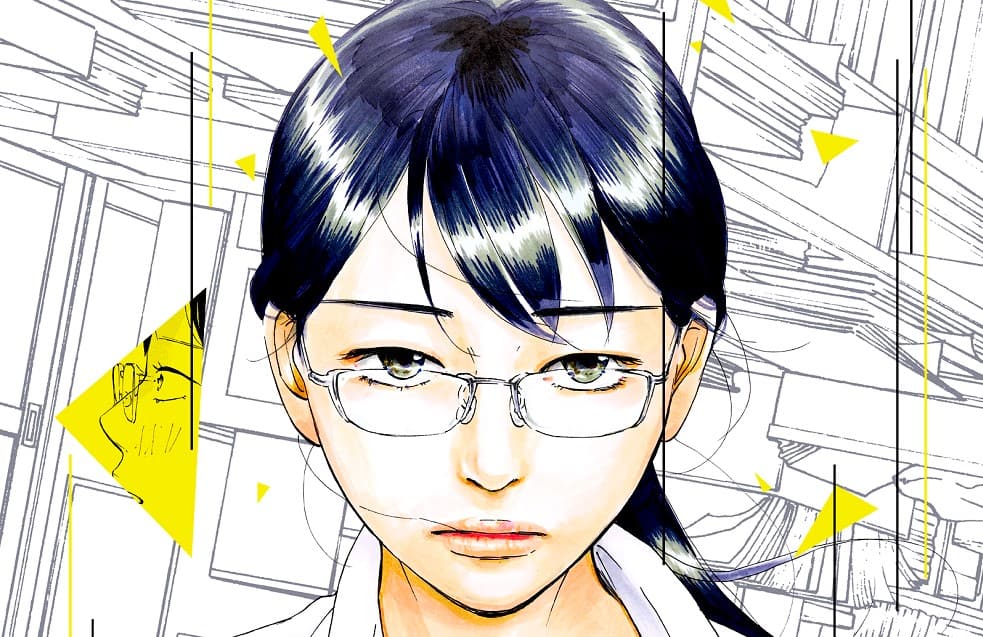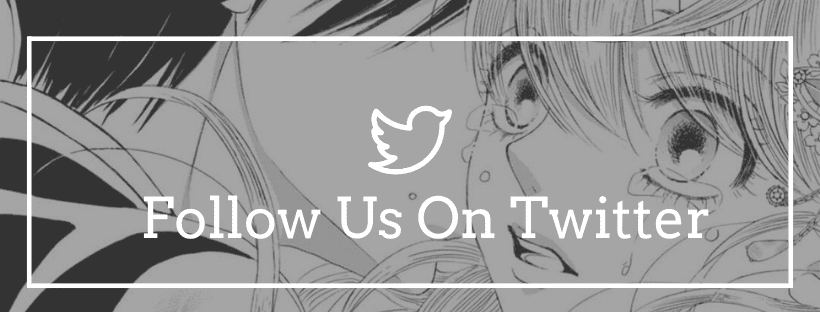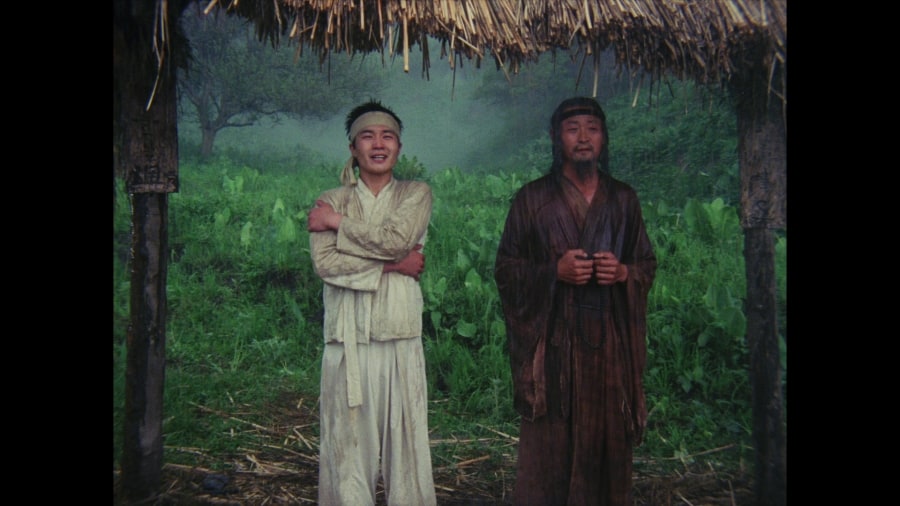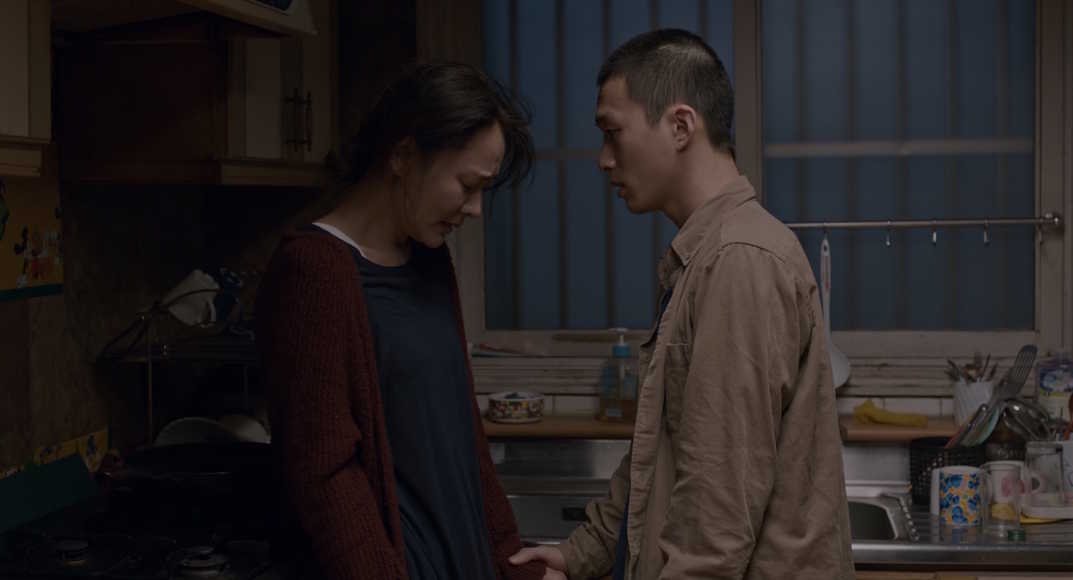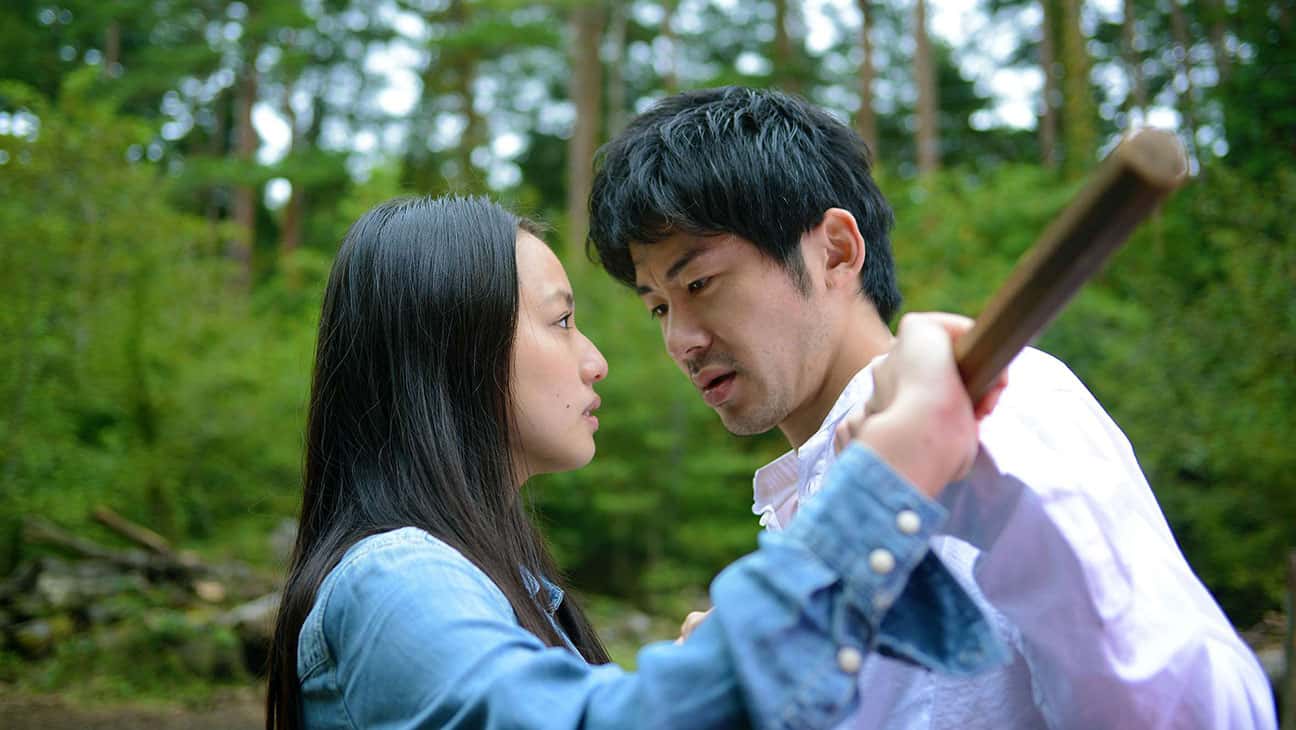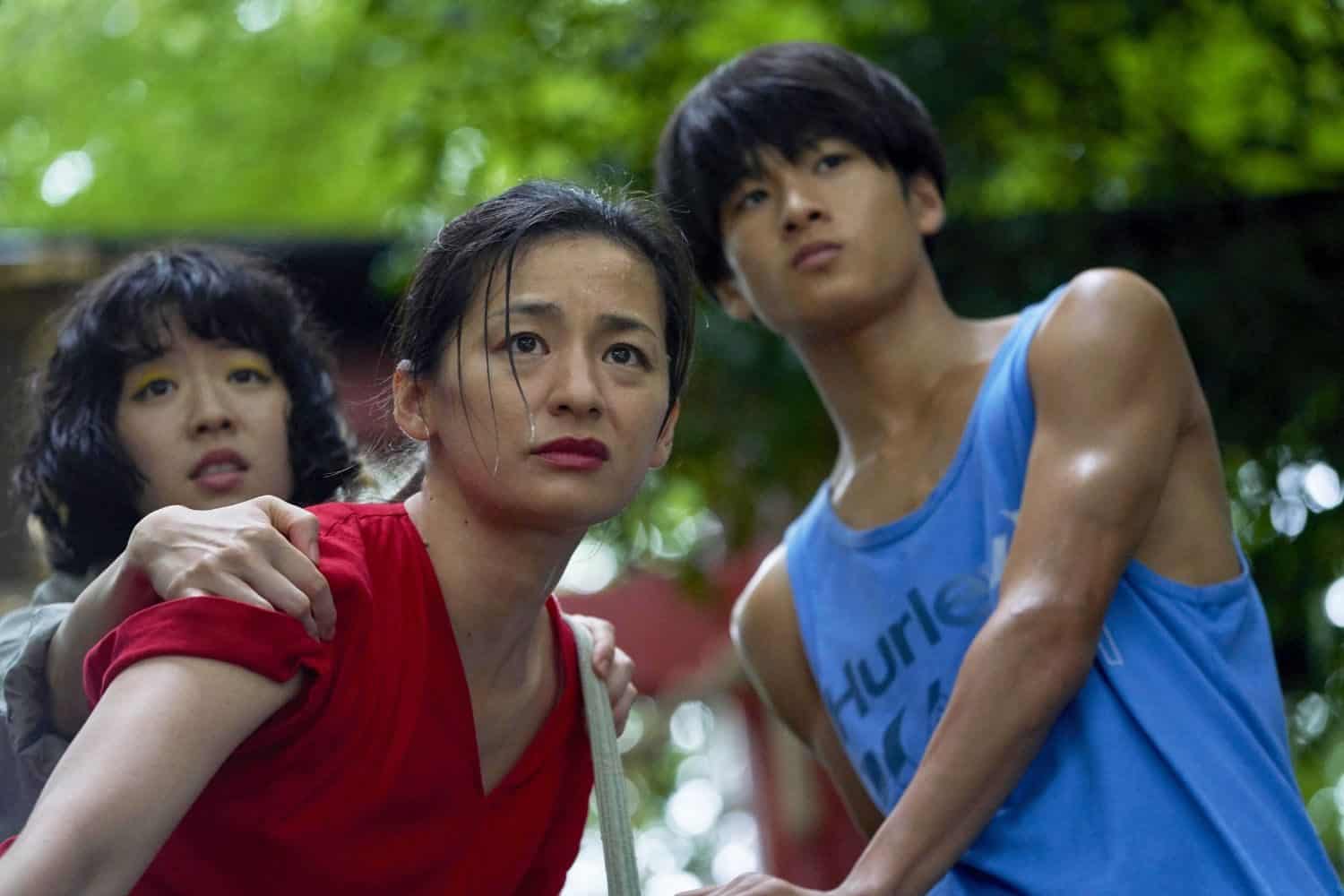“Misuzu Hara is a quiet, reserved 24-year-old high school teacher whose world is turned upside down after her friend's fiancé rapes her. Her attempt to connect with one of her students, himself a victim of sexual trauma, results in an unlikely romance, and the repercussions of these events affect everyone around them in often unpredictable ways.” (Kodansha)
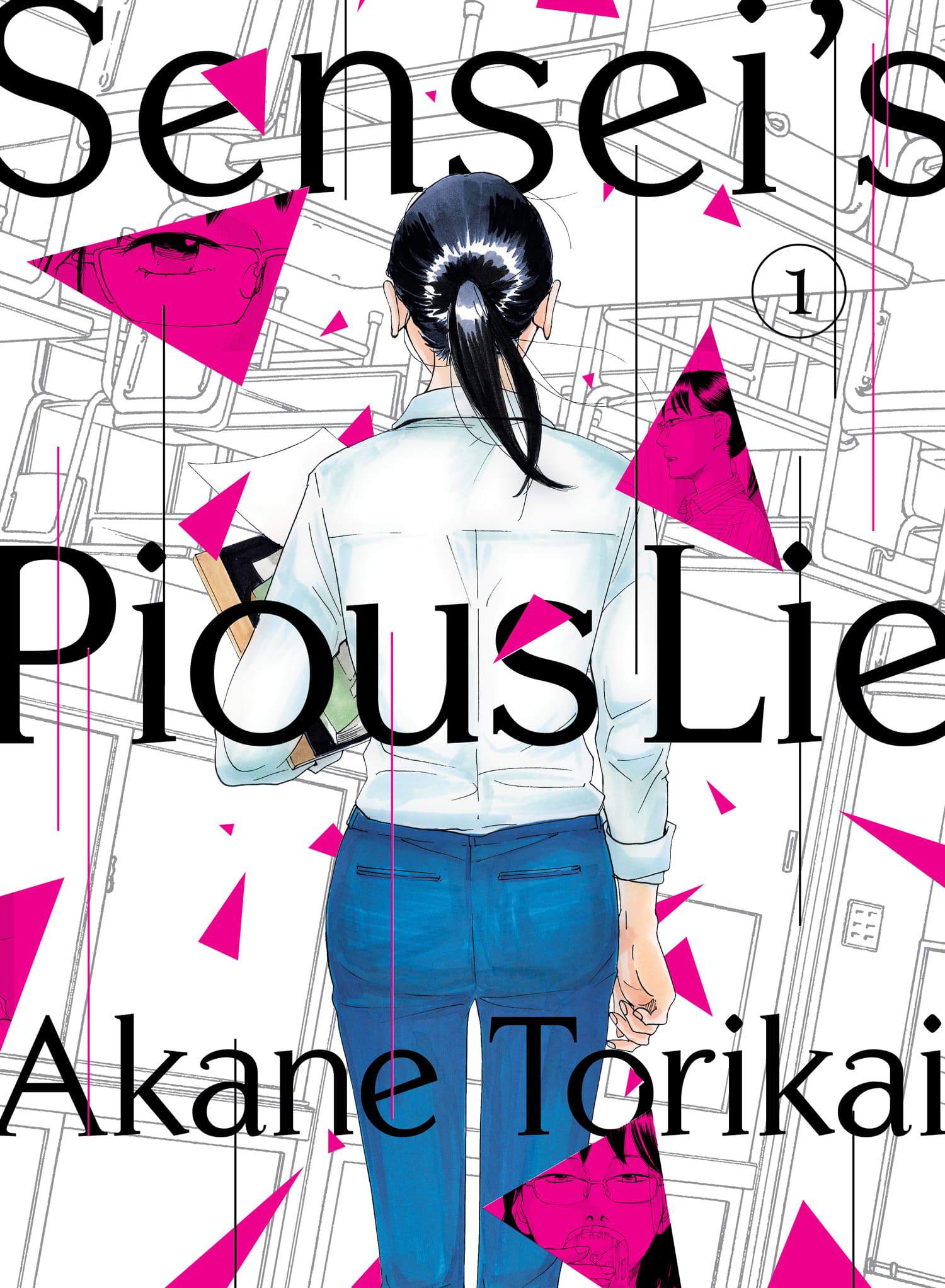
*This review covers the first two omnibus releases from Kodansha
As a general rule, it is considered bad form to dive into someone's personal life as a premise to frame their work– merit and explorations should be focused on the art itself unless the said project is based solely on personal experience. However, it will be difficult for many readers to push aside the fact that Akana Torikai is married to mangaka Inio Asano (Goodnight Pun Pun, Downfall, Nijigahara Holograph), a mangaka who has had a longer and more prominent career (at this point). It is difficult to disregard this connection as “Sensei's Pious Lie” resonates so much of what makes Asano such a beloved cult icon within manga. At the same time, Akane Torikai has a very unique perspective on the theme of abuse, so even if the flow and sense of tragedy are comparable to Asano's work, Torikai delivers her gut-wrenching story in a manner that is still her own.
Sticking with comparisons to Asano, “Sensei's Pious Lie” thrives on uncomfortable themes and has an unabashed way of addressing mental health issues. There is no real ‘hero' within the work, as teacher Misuzu Hara and student Niizuma both suffer from abuse but manifest it in really unhealthy ways. Hara continues to allow her abuse to continue while becoming involved with a student, and Niizuma uses others to fill the void and test his own limits after his incident with his employer's wife. These are unlikable characters, yet, their effect on the reader is bound to be profound as the complexities and hopelessness of their situations evoke a sense of tragic sympathy. To make a more blunt interpretation, the series is ‘misery porn' at its most compelling and intelligent, that at even two volumes the reader is left to believe that there may not be any redemptive arcs, but rather further downfall and humiliation. One can't help to think of the line “misery loves company” when looking at the work of Torikai and Asano (from an artistic critique).
The other major comparison between the two creators is in artistic styling. If it was not for the subtle (yet important) difference between the two creators, one could mistake the works of one for the other. This is far from a negative sentiment as the art is viscerally expressive, and the way that Torikai is able to explore the emotions and sexuality of her characters through art is sublime in its execution. Undeniably, Araki knows how to time an outburst with devastating lines or thoughts to really drive home the sense of desperation or sorrow felt by her subjects
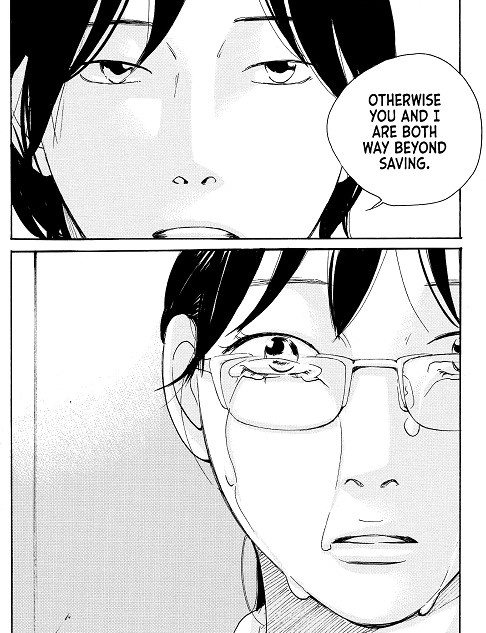
Where Torikai's voice becomes prominent and distinct is in approaching issues of abuse from a woman's perspective. As easy as it is to point to the similarities between the two married mangakas, “Sensei's Pious Lie” is not a story that Asano could tell. This should not be confused with the material being only accessible to a female audience, but instead a statement of the book's strength in being able to explore a troubled woman's psyche. There are a lot of themes that can be further expounded on and explored, it is a complex and confrontational read whose nuances are what separate if from a direct comparison to Asano.
Personally, the work of Asano always leaves me feeling rather devastated, but his themes are largely on how tragedy and mental health effects men. Comparatively, “Sensei's Pious Lies” still hits those gut-wrenching beats, but there was a slight disconnect having not experienced the kind of abuse explored within the pages in my own struggles. Certainly, the book is accessible to anyone who can stomach it but the themes it touches on are, generally speaking, likely to cut deeper with women than men. At the same time, “Sensei's Pious Lie” offers a unique insight that is absent from other misery maestros like Inio Asano and Shuzo Oshimi that it should still be welcomed by those who love exploring human fragility.
Given the graphic nature of “Sensei's Pious Lie”, and the realization that there may not be a silver lining for the characters, the work is obviously only going to appeal to certain readers. But for those infatuated with the works of Inio Asano (I know there are a lot of you out there), Akane Torikai is equally deserved of the same obsessive fandom. Volume 3 is out shortly and I can barely wait, this is masterful storytelling at its finest which can only exist in the manga format. Make sure you check it out.


